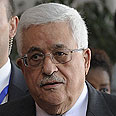US Secretary of State John Kerry managed to jumpstart the direct negotiations between Israel and the Palestinians – no more, but no less either. The achievement is that low profile dialogue is beginning, without preconditions or bombastic declarations. This is expected to prevent a large 'explosion' in the event that the talks fail – as was the case following the Camp David negotiations and after the Oslo process reached an impasse and even took a step backwards.
The fact that the negotiations will be held in Washington has two advantages. First of all, the talks between Tzipi Livni and Saeb Erikat will be confidential; both are seasoned and businesslike negotiators. They would not be coming to Washington if there was nothing to discuss. Secondly, the process will be conducted under the watchful eye of the American babysitter, which will apparently be present during some of the meetings. There are also secret understandings that were not addressed in Kerry's statement and will be revealed at a later date.
This format is a very good way to conduct negotiations without allowing the media to cover every angle and without forcing the leaders to constantly appease the politicians who oppose the process. Negotiations in Washington, conducted without the leaders, will not cause a political storm or lead to opposition the likes of which we would have seen during direct negotiations between Netanyahu and Abbas - even if these direct talks would be held only in the opening meeting, before the committees take over (similar to the previous attempt in 2010).
Kerry may be aiming for a three-stage process:
- In the first stage Livni and Erekat
will reach understandings in principle on the negotiating method and reach a preliminary agreement on the core issues. For example, they may decide on land swaps without determining in advance that the negotiations will be conducted on the basis of the 1967 borders. This will allow for discussions on the essence without climbing up the tall trees of principles.
- In the second stage – assuming the first stage is successful – the sides will draft a declaration on the principles of a permanent solution.
- The third stage will focus on the details of the agreement.

Livni and Erekat (far right) in 2008 (Photo: Moshe Milner, GPO)
This was how the peace process with Egypt developed. It began in Camp David and ended on the White House lawn. This was also how the Oslo negotiations were conducted. These three stages appear to be crucial. The core issues include not only the Palestinian refugees and borders, but also the character of the permanent agreement – whether it will be implemented gradually or all at once (not a likely scenario).
We already know the agreement that will be discussed will be based on three packages:
- Diplomatic-security package in which issues such as borders and security arrangements will be determined.
- Economic package that will include not only arrangements between the future state and Israel, but mainly economic measures and projects aimed at improving the situation of the Palestinians in the territories through foreign aid. The package will be under the responsibility of the US and the Arab League. The Europeans are unable to contribute much as this juncture, and they are also expected to get the cold shoulder from Israel.
- Trust-building measures: For example, the release of Palestinian prisoners who have been held in Israel for more than 20 years; easing restrictions on traffic in the West Bank and the freezing of construction outside the settlement blocs – perhaps even an official freeze. The pace in which these measures will be implemented will be synchronized with the pace in which the talks will progress. It is safe to assume that Netanyahu, who will be offering the gestures, will operate according to the familiar principle: If they give, they'll receive; if they won't give, they won't receive.
A separate issue Livni and Erekat will have to resolve is what will happen in Gaza. It is only logical that they simply agree that the peace deal go into effect once the Palestinian Authority regains control over Gaza; when the Hamas obstacle is removed – the solution will come. The problem: Israel does not want the negotiations to encourage Abbas to reconcile with Hamas, which currently rules Gaza. The Palestinian president himself is not keen on reconciling with the Islamist group. Therefore, this issue is more complicated, also due to the fact that the Gazans, mainly the rebellious factions, are capable of undermining the understandings by firing rockets at Israel.
All in all, this is a humble beginning which promises that there will not be a colossal failure at the get-go. Will the negotiations bear fruit? There are very few people in the Middle East or the world who can predict the outcome. In such a dynamic equation with so many variables, it is hard to see the sides reaching a solution.


















